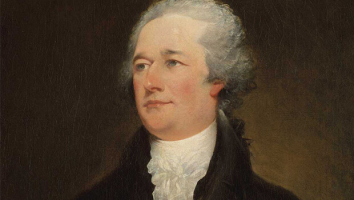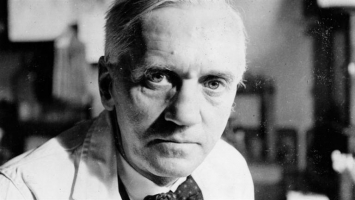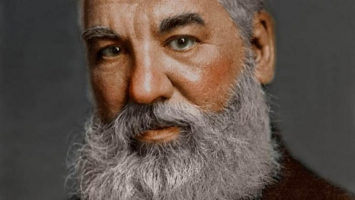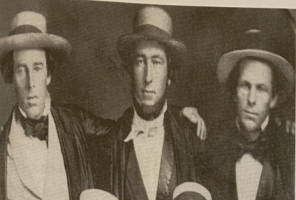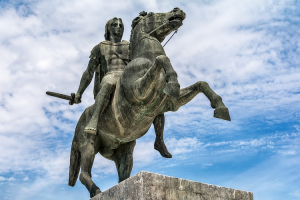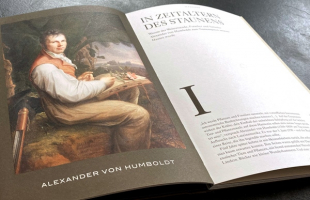Top 5 Interesting Facts about Alexander Pope
Alexander Pope (21 May 1688 - 30 May 1744) was an English Enlightenment poet, translator, and satire who is regarded as one of the most important English poets ... read more...of the early 18th century. Pope is best known for his satirical and argumentative poetry, notably The Rape of the Lock, The Dunciad, and An Essay on Criticism, as well as his translation of Homer. Here are the 5 interesting facts about Alexander Pope you should know.
-
One of the interesting facts about Alexander Pope is that he was a Catholic, which made his education difficult. Alexander Pope was born in London on May 21, 1688, during the Glorious Revolution. His father (Alexander Pope) was a renowned linen merchant on London's Strand. Edith, his mother, was the daughter of York's William Turner, Esquire. Both of his parents were Catholic. His mother's sister married the well-known miniature painter Samuel Cooper. The adopted Test Acts, a set of English penal laws that protected the status of the established Church of England by prohibiting Catholics from teaching, attending university, voting, and holding public office under penalty of lifelong imprisonment, had an impact on Pope's education. Pope learned to read from his aunt and attended Twyford School in 1698. In London, he also attended two Roman Catholic schools. Although unlawful, such schools were permitted in some locations.
In 1700, his family relocated to Popeswood, a modest estate in Binfield, Berkshire, near the royal Windsor Forest. This was due to anti-Catholic sentiment and a law prohibiting "Papists" from residing within 16 kilometers of London or Westminster. Pope's formal education stopped at this point, and he educated himself mostly through reading the works of ancient writers such as the satirists Horace and Juvenal, epic poets Homer and Virgil, and English authors such as Geoffrey Chaucer, William Shakespeare, and John Dryden. He learned numerous languages and read poets from France, Italy, Latin, and Greece. Pope encountered literary figures such as William Congreve, Samuel Garth, and William Trumbull after five years of study.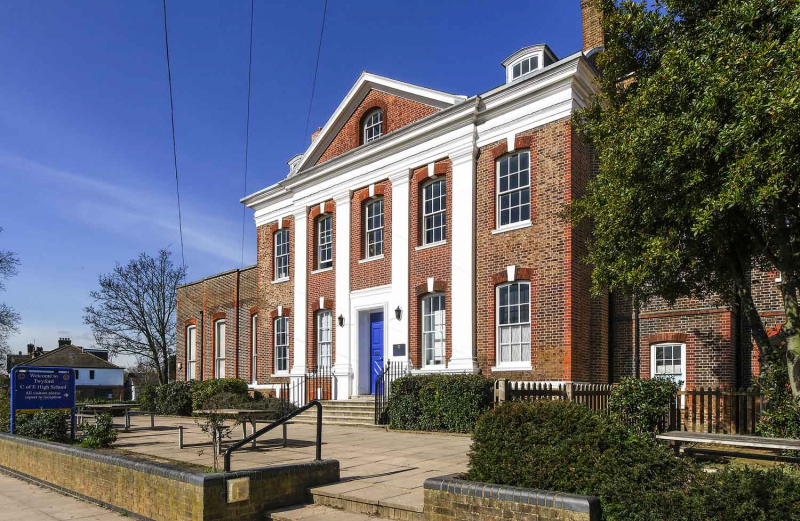
Twyford School -Photo: dolphinsolutions.co.uk 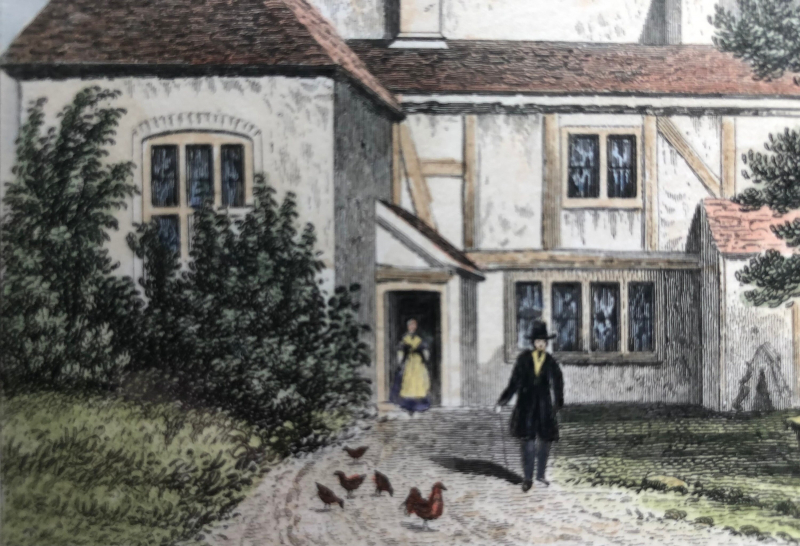
Alexander Pope's home at Binfield, near Windsor Forest, Berkshire -Photo: etsy.com -
It is a fact that Alexander Pope had numerous health issues since he was young. He had numerous health issues since the age of 12, including Pott disease. Pott disease is a kind of TB of the spine caused by hematogenous dissemination from other organs, most commonly the lungs. The lower thoracic and upper lumbar vertebrae of the spine are the most commonly affected sites. It produces tuberculous arthritis in the intervertebral joints. The infection has the potential to spread from two adjacent vertebrae into the surrounding intervertebral disc space.
The disease distorted his body and limited his growth, leaving him with a terrible hunchback. His tuberculosis infection created other health issues such as respiratory problems, high fevers, swollen eyes, and abdominal pain. He was just 4 feet 6 inches tall when he was born (1.37 meters). Pope was already isolated from society as a Catholic, and his terrible health further added to that. Despite the fact that he was never married, he had a large number of female acquaintances to whom he sent witty letters, including Lady Mary Wortley Montagu. His lifelong acquaintance Martha Blount is said to have been his girlfriend. According to Joseph Spence, his friend William Cheselden stated, "I could give a more particular account of Mr. Pope's health than perhaps any man. Cibber's slander (of carnosity) is false. He had been gay [happy], but left that way of life upon his acquaintance with Mrs. B."
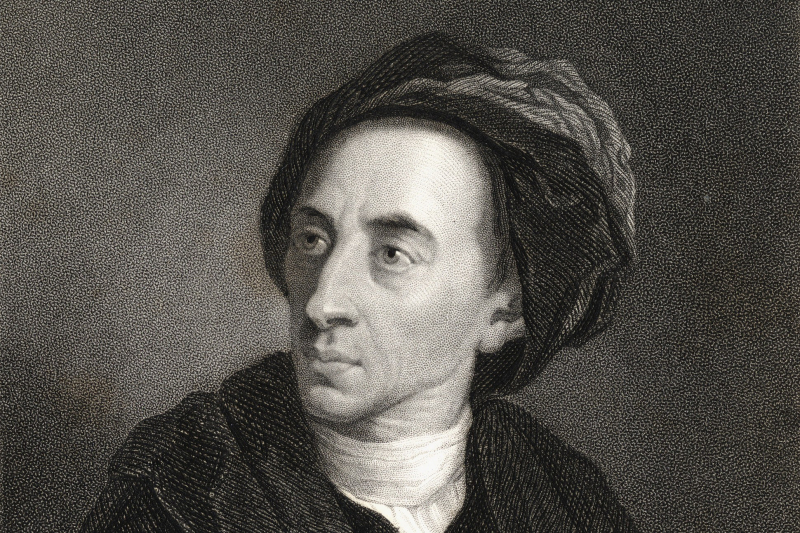
poetryfoundation.org 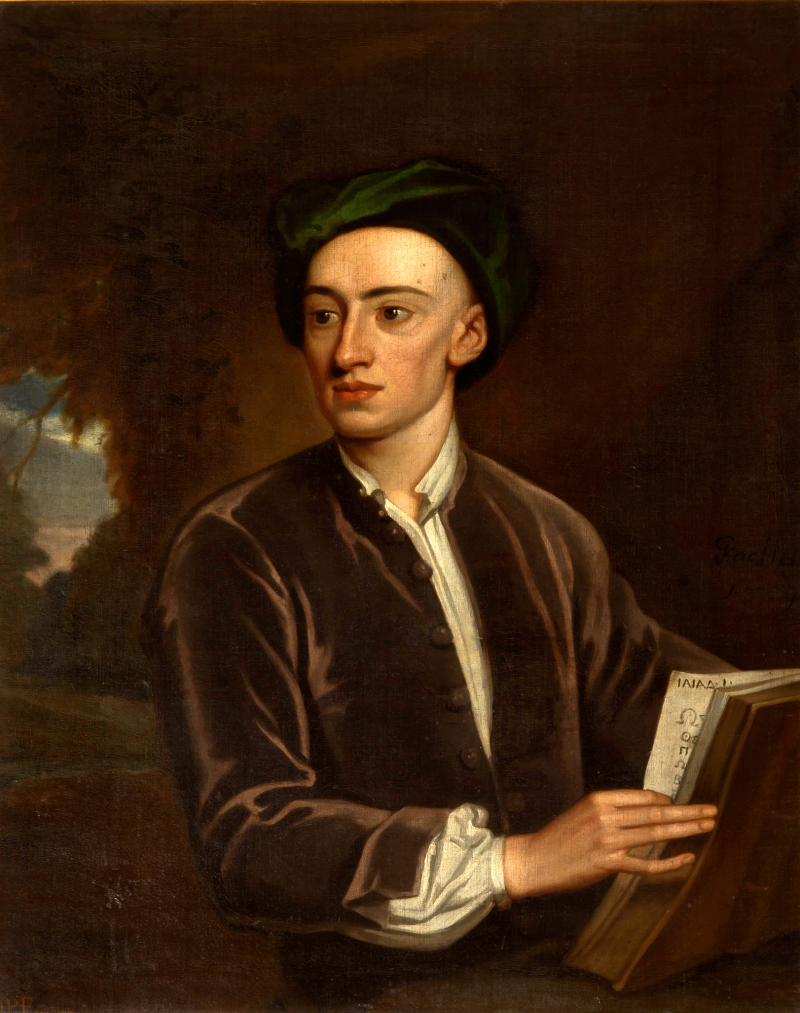
bl.uk -
Another interesting fact is that he lived in an opulent London villa. Pope was able to move to a villa in Twickenham in 1719 thanks to the proceeds from his Homer translation, where he established his now-famous grotto and gardens. The accidental discovery of a spring during the excavation of the subterranean retreat allowed it to be filled with the soothing sound of trickling water, which would quietly echo throughout the chambers. "Were it to have nymphs as well – it would be complete in everything, " Pope was supposed to have stated. Although the house and gardens have been demolished, most of the grotto can still be found beneath Radnor House Independent Co-educational School.
When Baroness Howe of Langar (1762-1835) bought the home in 1808, she demolished it and erected a new mansion nearby. The home and grotto inspired poetry and art in the 18th and 19th centuries. On the same site, in about 1845, a neo-Tudor home known as Pope's Villa was built; it has been utilized as a school since the early twentieth century.
Pope's mansion, gardens, and grotto were frequently discussed and represented in poetry and art. Between 1730 and 1888, at least 55 drawings, paintings, aquatints, engravings, etchings, and lithographs depicting the river facade or the grotto survived. These began with drawings and paintings by Pope and his associates and lasted through works he may have commissioned (a sketch of the Shell Temple by Kent and a picture by Peter Tillemans from around 1730) and most of the nineteenth century.
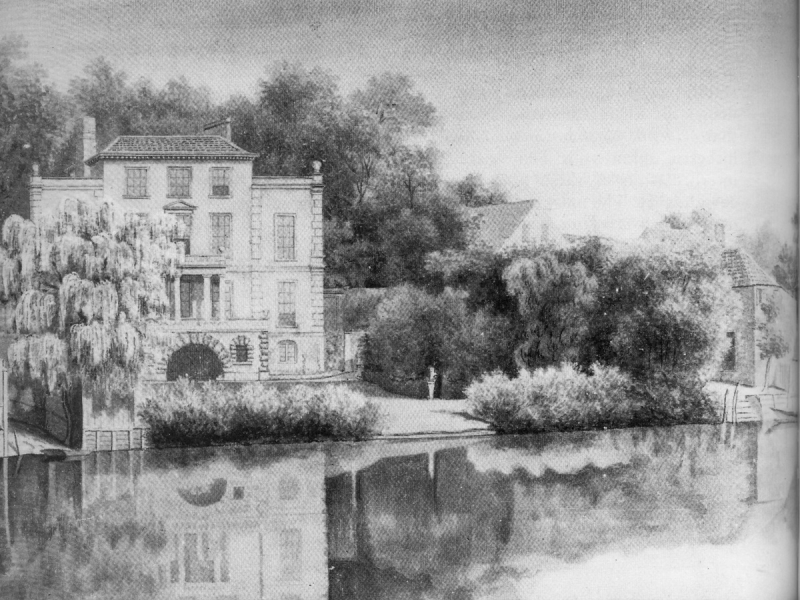
Pope's villa - Photo en.wikipedia.org 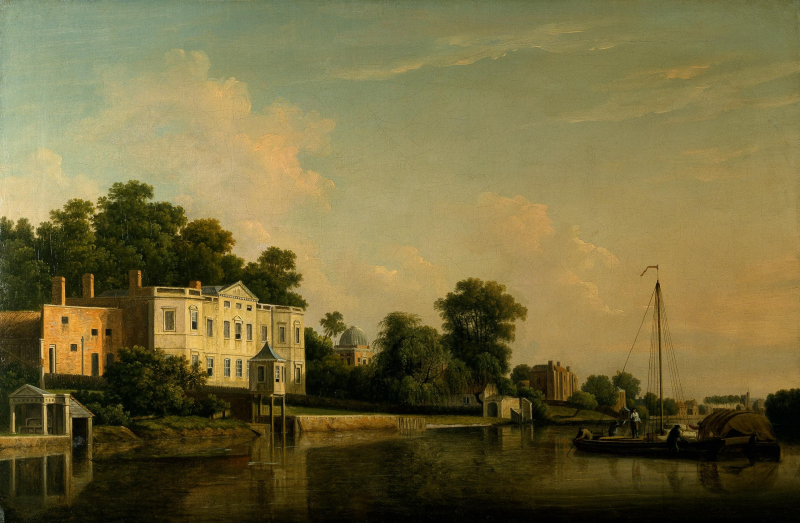
Pope's villa - Photo: commons.wikimedia.org -
One of the interesting facts about Alexander Pope is that he took about three years to finish An Essay on Criticism. On May 15, 1711, An Essay on Criticism was originally published anonymously. Pope began writing the poem early in his career and finished it three years later. The poem's epic couplet style was a relatively new poetry form at the time of publication, and Pope's work was an ambitious endeavor to identify and refine his own perspectives as a poet and critic. It was said to be a response to the ongoing argument over whether poetry should be natural or created according to predefined artificial principles passed down from the classical past.
The work opens with a description of the standard norms that govern poetry, based on which a critic makes a decision. Pope discusses the classical authors who dealt with such criteria and the authority he believes they should be given. He highlights the rules that a critic should follow when studying poetry, emphasizing the critical role that critics have in assisting poets with their works rather than simply condemning them. An Essay on Criticism concludes with a discussion of the moral attributes and virtues inherent in a perfect critic, whom Pope thinks is also the ideal man.
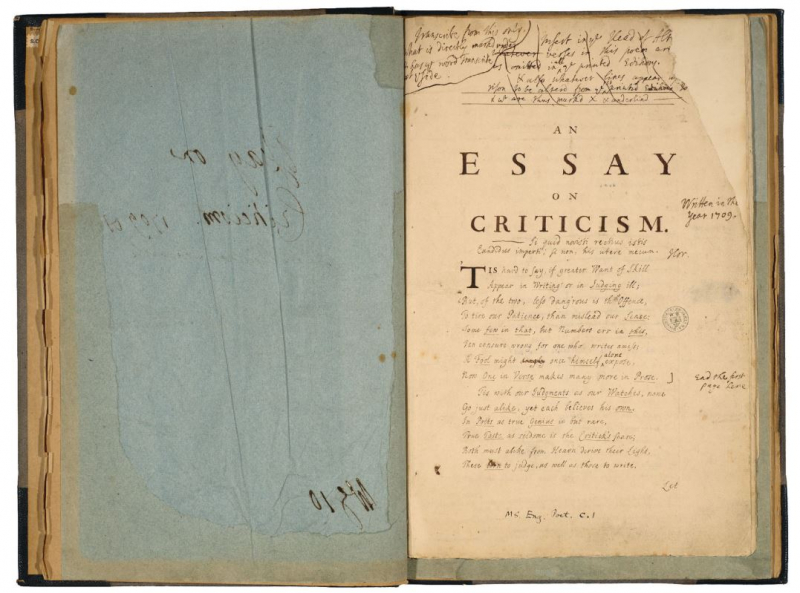
An Essay on Criticism -Photo: twitter.com 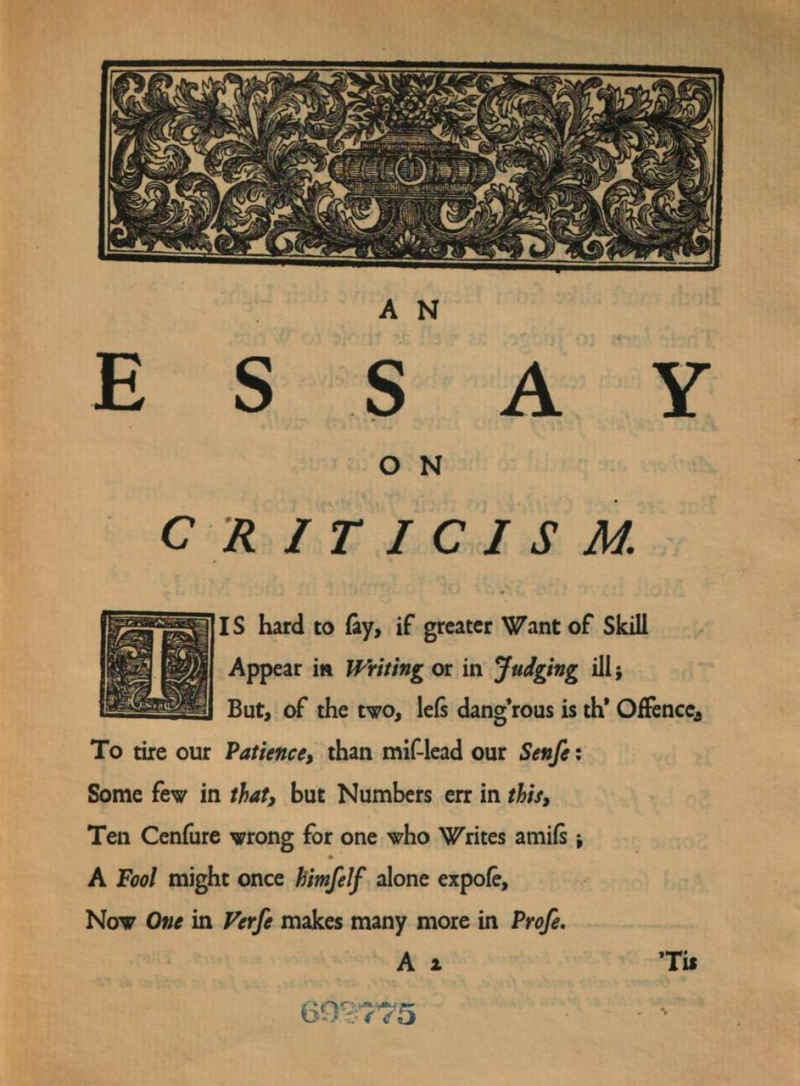
An Essay on Criticism -Photo: en.wikisource.org -
One of the interesting facts about Alexander Pope is that Alexander Pope was known as "the Wasp of Twickenham". Alexander Pope gained this nickname as a result of his stinging satirical attacks on notable persons of the time, particularly fellow writers. Pope made his share of enemies as a satirist, as critics, politicians, and other famous persons felt the sting of his sharp-witted satires. Some were so virulent that Pope walked his dog while carrying pistols.
Though The Dunciad was first published anonymously in Dublin, its authorship was never questioned. Despite the fact that it has become "one of the most challenging and distinctive works in the history of English poetry, it bore bitter fruit. It brought the poet in his own time the hostility of its victims and their sympathizers, who pursued him implacably from then on with a few damaging truths and a host of slanders and lies" (as Mack stated).
Some of Pope's targets were so incensed with The Dunciad, according to his half-sister Magdalen Rackett, that they threatened him physically. Some of Pope's targets were so incensed with The Dunciad, according to his half-sister Magdalen Rackett, that they threatened him violently. "My brother does not seem to know what fear is," she explained to Joseph Spence, noting that Pope preferred to walk alone, but he was joined by his Great Dane Bounce, and for a time carried handguns in his pocket. Although Pope was an active participant in the stock and money markets, he never missed an opportunity to ridicule the personal, social, and political consequences of the new order. From The Rape of the Lock onwards, these satirical themes appear constantly in his work.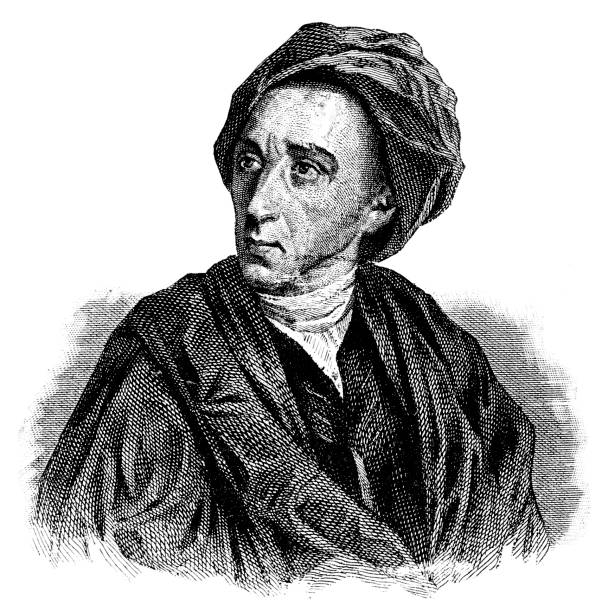
Photo: istockphoto.com 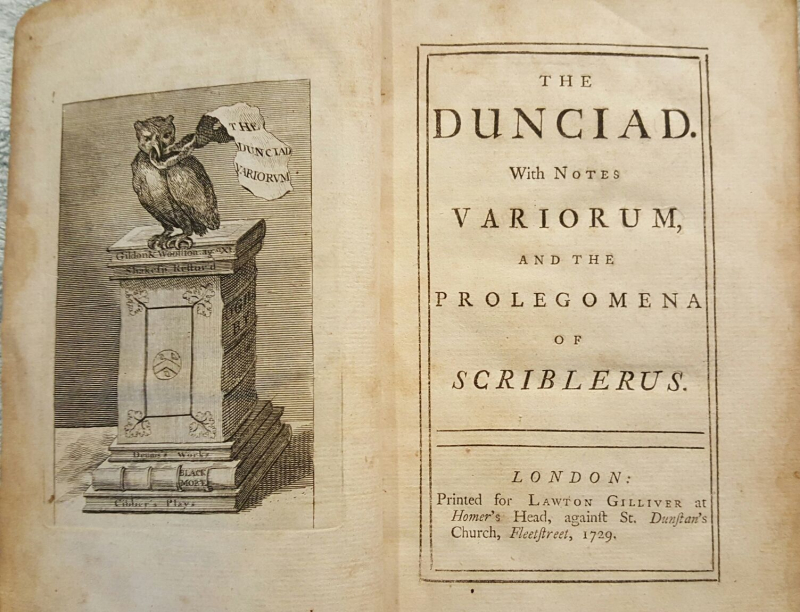
The Dunciad -Photo: biblio.co.uk · In stock







